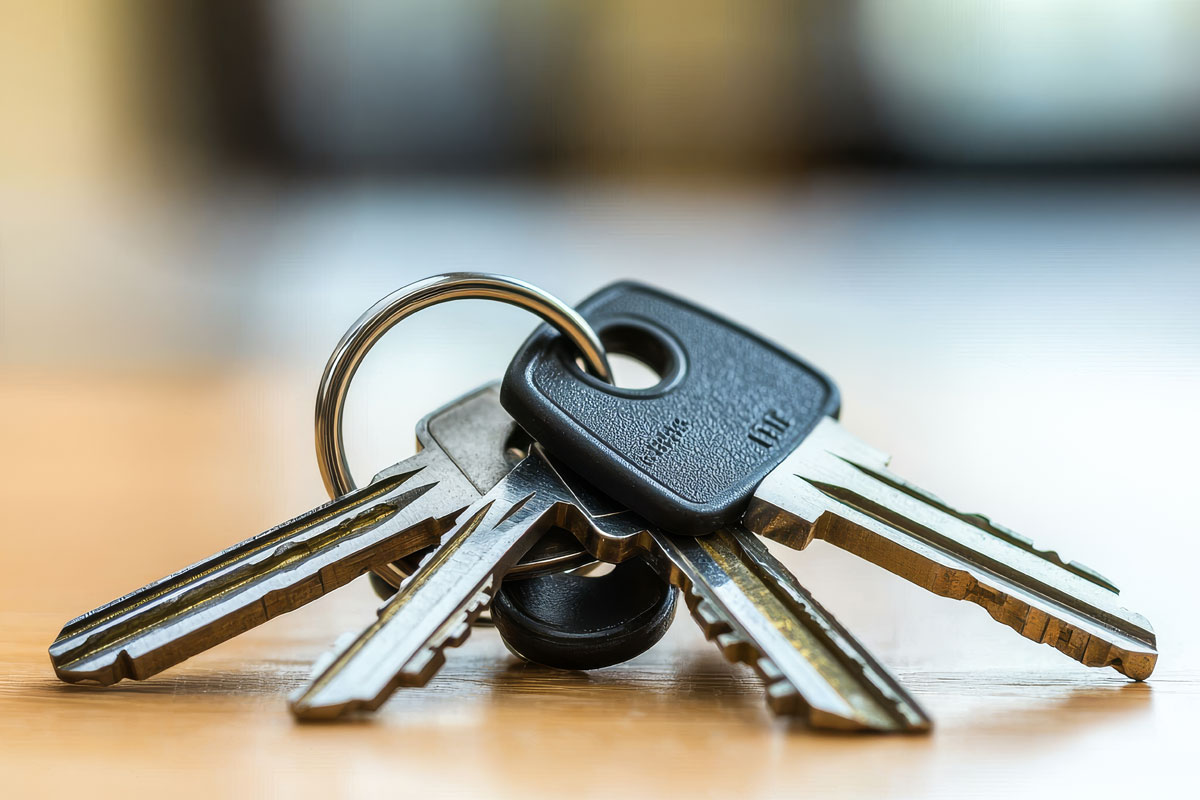Owning a mobile home comes with a few caveats you don’t have with traditional homes. Most conventional homes are “real property,” which is land and anything built on, attached to, or growing from the land itself. Real property means the owners can occupy and use the land or sell it and transfer ownership. Additionally, real property is protected by and subjected to zoning laws and building codes.
On the other hand, personal property is not fixed to a piece of land. Unlike real property, personal property can be relocated and moved from place to place. The distinction between the two is important because it determines whether you pay fees to the Department of Motor Vehicles (DMV) or county property taxes. Your mobile home’s classification also affects resale and title transfers.
In this guide, we’ll discuss how to determine your mobile home’s classification, change its status, and options for removing your home.
How to Determine Your Mobile Home’s Classification
In the past, most mobile homes were moved from place to place. They featured hitches, axles, and wheels to make them easier to move or “mobile.” They were seen as vehicles and titled as such through the DMV.
Today, most mobile homes are affixed to a foundation on a piece of real property. Apart from Recreational Vehicles (RVs), these homes are now called manufactured homes. While mobile homes are usually affixed to land, not every mobile home is classified as real property.
There are three simple ways you can determine your mobile home’s classification:
- Check the title or deed: If your mobile home has a DMV title, it is considered personal property. Conversely, if it has a recorded deed, it is classified as real property.
- Land ownership: If you own the land your mobile home is on, your home can be converted into real property. However, if you lease the lot or land you live on, your mobile home will always be considered personal property.
- Permanent foundation and Housing and Urban Development (HUD) tags: For your mobile home to be considered real property or to be eligible for conversion to real property, it must have a permanent foundation and HUD tags, meaning it meets HUD code requirements.
Implications of Each Classification
The classification of your mobile home matters. Having a mobile home as real property provides you with benefits, especially financing, taxation, and appreciation.
If your home is real property, you have a single title and tax bill. Your home may be taxed at a higher rate than a mobile home that is personal property, especially if it is converted to real property. However, you will enjoy the same tax benefits and insurance rates as traditional site-built homes. Another positive of owning a real-property mobile home is that your home’s value will appreciate, meaning the resale value will be higher than what you paid for it.
With real property, you can access several refinancing options to help lower your monthly payments, consolidate debt, access your home’s equity, and shorten your repayment term. You may qualify for a Land/Home loan, which has terms, conditions, and interest rates similar to conventional mortgages. Another loan you may be able to obtain is a LandPlus loan. This loan allows you to use the equity in your land for a down payment.
Mobile homes classified as personal property are easier to move, but they are harder to refinance and insure. You can only finance your personal property with a Chattel loan. These loans have shorter repayment terms and higher interest rates.
If you own the land your home is on, you’ll also have two titles and two tax bills. One title and tax bill will be for the land, while the other title and tax bill will be for the home itself. The tax on your home will either be classified as a vehicle or personal property tax, which is often taxed at a higher rate than traditional real estate taxes.
Converting a Mobile Home from Personal to Real Property
Homeownership offers many benefits, such as better financing and increased resale value. However, the only way to enjoy them with a mobile home is to convert it to real property. In most states, the conversion process is straightforward and involves the following steps:
- Checking HUD certification: The HUD certification is a placard located at the base of your mobile home. It certifies that your mobile home meets the minimum building standards. If it has this certification, your home can be converted to real property.
- Building a foundation: You must construct a permanent foundation for your home. After you remove your home’s wheels, towing hitch, and axle, you can affix your home to the foundation. Additionally, you’ll need to surrender the VIN with the DMV or appropriate state agency.
- Connect utilities: Once you attach your home to the permanent foundation, connect the electricity, water, and other required utilities. Then, your county’s code department must approve the setup and foundation to ensure your home is safe and complies with local regulations.
- Filing an affidavit of affixation: Also known as a certification of location, this paper indicates that your mobile home is attached to a piece of land. This certificate shows your mobile home is eligible to be a real property.
- Complete your application: To finish your conversion application, you need your decal number, the latest Department of Housing and Community Development (HCD) certificate of title, and the latest HCD registration card. If you own your home and the land, you also need those titles and deeds.
What if Conversion Isn’t Worth It?
Converting your mobile home from personal to real property is a simple process that can take a few weeks to a few months, depending on the state and county you live in. You also must factor in fees and costs, including building a foundation, filing paperwork, turning on utilities, and inspections.
While converting your home to real property offers numerous benefits, there are some instances where the process isn’t worth the cost or time. If your mobile home was built before 1976, it will need to be remodeled and retrofitted to fit current HUD requirements. Additionally, if your home is in rough condition, you’ll need to renovate it and fix it up to pass inspection.
These renovations and remodels add expense to your conversion project. If the cost of converting your home is more than your home is worth, selling or donating your mobile home may be better options.
Donate Your Mobile Home—A Simpler Exit Strategy
If you’re looking to enjoy the tax and lifestyle benefits of a real property, consider donating your mobile home. This is a great option for owners facing costly conversions or who have mobile homes with minimal resale value.
If you donate your home to Banyan Mobile Home Removal, we make the process quick and easy. We start with a free assessment to determine the quality of your home. Then, we’ll fill out all the paperwork for you so you can spend more time looking for a new manufactured or site-built home. Finally, we’ll pick up your home at no cost to you.
We are a 501c3 certified nonprofit, which means donating your mobile home to us offers you the following benefits:
- No demolition fees
- Reduced taxable income by claiming your home as a tax deduction
- Eco-friendly reuse of your home to provide housing for disaster survivors, low-income families, or veterans
Frequently Asked Questions
How do I find out if my mobile home is titled as personal property?
Contact your state’s Department of Motor Vehicles or Department of Housing and Community Development (HCD). If your mobile home is personal property, it’s most likely being treated as a vehicle for titling purposes.
What are the benefits of converting to real property?
Converting a mobile home to real property offers several tax, security, and financing benefits. You’ll receive access to conventional mortgage financing, property tax benefits, and increased resale value.
How long does the conversion process take?
Depending on where you live, the conversion process can take a few weeks or months.
Can I refinance a personal-property mobile home?
Yes, you can refinance a personal-property mobile home. However, you’ll usually have smaller repayment terms and higher interest rates.
What taxes will I owe on a personal vs. real-property mobile home?
If your mobile home is real property, you’ll pay property taxes. The amount of taxes you’ll pay is based on the value of your home and where you live. If your home is personal property, you’ll have to pay property tax. This tax amount is based on the value of your home.
Is donating my mobile home a good option if I can’t convert it?
Yes, donating your mobile home is a great option if you can’t convert it. Not only will your donation be tax-deductible, but it’s also a good way to reuse your home. Your home will provide housing for low-income families, veterans, or disaster survivors while protecting the environment.
Get a Free Donation Assessment with Banyan Mobile Home Removal
Most mobile homes are classified as personal property. However, if it is affixed to land, it may be listed as real property, offering better resale value and tax benefits. If you’re unsure about the status of your mobile home, contact your state’s DMV or HCD to see if there is a current vehicle deed. You can also contact your county’s assessor’s office to see your home’s tax status.
In some instances, converting your mobile home to real property may be beneficial. This simple process involves building a foundation, attaching your home to it, and hooking up utilities. If your home is hard to convert or you live in an area with strict zoning laws, donation is a cost-effective and eco-friendly alternative.
At Banyan Mobile Home Removal, we make the donation process simple. As an accredited 501c3 nonprofit, we have removed homes throughout the country. Contact us today for a free assessment and donation guidance.


